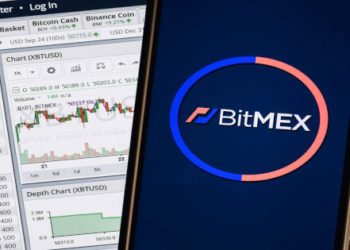Circle has announced the upcoming launch of native USDC on the OP Mainnet. The announcement, part of Circle’s #StableSeptember series, outlines the benefits and changes that will accompany this development.
Native USDC: A New Standard for the Optimism’s OP Mainnet
According to the official blog post dated [insert date of the blog post], USDC issued by Circle will become the “official form of USDC for the [OP Mainnet] ecosystem.” This move is expected to gradually replace the currently circulating bridged USDC liquidity originating from Ethereum.
The introduction of native USDC is poised to enhance the OP Mainnet’s financial infrastructure, potentially attracting more institutional investors and fostering greater liquidity. However, it remains to be seen how this will impact the broader stablecoin market and whether native USDC will become the de facto standard for the OP Mainnet.
Key Features and Benefits
The native USDC will offer OP Mainnet users several advantages:
Dollar-Backed Stability: The stablecoin is fully reserved and redeemable at a 1:1 ratio for US dollars.
Institutional On/Off-Ramps: The new form of USDC will facilitate easier access to institutional-level financial mechanisms.
Technical Details
Token Symbol for Bridged USDC from Ethereum: USDC.e
Token Address for Bridged USDC: 0x7f5c764cbc14f9669b88837ca1490cca17c31607
Token Symbol for Native USDC: USDC
Token Address for Native USDC: 0x0b2C639c533813f4Aa9D7837CAf62653d097Ff85
Transition and Liquidity
Circle and Optimism will collaborate to ensure a smooth transition of liquidity from the Ethereum-bridged USDC (now renamed as USDC.e) to the native USDC. The OP Mainnet bridge will continue to operate as usual, with no immediate changes planned.
Ecosystem Expansion
Circle has been strategically expanding its USDC ecosystem across various platforms. In addition to the OP Mainnet, Circle has also minted native USDC on Coinbase’s Base, Solana, and primarily on Ethereum.
Recently, Circle entered into a partnership with Mercado Pago, Latin America’s largest fintech company, to meet the growing demand for trusted digital dollars in Chile. This collaboration aims to provide millions of users with access to USDC for seamless transactions.
Serving as a store of value akin to fiat USD, Circle has released a comprehensive guide detailing how to transfer USDC to Phantom, which is Solana’s premier web and mobile wallet.
Furthermore, Circle has introduced the Cross-Chain Transfer Protocol (CCTP), enabling the exchange of native USDC between supported networks such as Ethereum, Arbitrum, and Avalanche.
Image source: Shutterstock
Credit: Source link











































